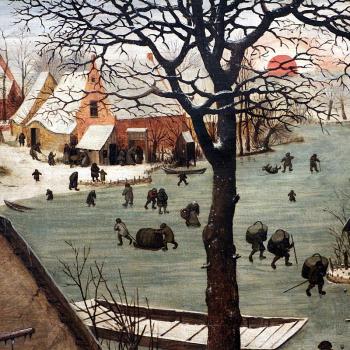These issues raise the questions at the heart of what it means for something to be “a Catholic country”: is it merely a question of “moral doctrine?” Can everything else be excused as long as it frowns upon divorce and abortion?
From the perspective of the Church, the answer must be a resounding: “no”:
The catechetical tradition also recalls that there are “sins that cry to heaven”: the blood of Abel, the sin of the Sodomites, the cry of the people oppressed in Egypt, the cry of the foreigner, the widow, and the orphan injustice to the wage. (The Catechism of the Catholic Church)
Note that most of these are actually concerned with justice, most especially those forms of oppression that leave people impoverished or otherwise distanced from society. The common good is primary—in fact, the “social” sins seem to be of primary importance. Poverty, human trafficking, ostracization from the community (perhaps through the form of a direct “war on drugs”)—these things all would seem to fall into the categories the Catechism directly calls out.
Now one might object: but the point is that it has a Christian culture! The point is that the Catholic Church has a position of extreme social import, not to mention that the government attempts to have at least some laws that conform to Catholic teaching. I would respond, however, that the Church has itself called out the current government and that the Church has explicitly denounced human sex trafficking, corruption, and extreme poverty (see here for one example). In other words, the Church has attempted to use its moral authority to criticize precisely those aspects of Filipino culture that I have sketched out here, those that I have labelled “problematic” or implicitly anti-Catholic.
What makes the Philippines “more Catholic” than a country like Poland, which still—though it is eroding—has a (more) robust welfare state that protects the poor?
The communist central planning system made a wide variety of payments to subsidize citizens in certain categories and encourage or discourage the activities of citizens in other categories. By the mid-1980s, the planning labyrinth created by such payments was such a fiscal burden that severe cuts were made in some payments. Like the health system, Poland’s welfare system underwent substantial decentralization and restructuring, and all parts of the system suffered from limited funding in the transition period that began in 1989. Although a higher percentage of the population needed welfare services because of high unemployment in that period, the need to reduce the government’s budget deficit caused drastic cuts in many services. Eventual reversal of this trend depends upon the speed with which Poland’s economy rebounds from its transition crisis and upon the efficiency of the new welfare bureaucracies. (countrystudies.us)
Malta, another “top contender” has endured similar problems—a powerful welfare state under fire (in this case since the 2008 financial crisis). Both of these countries, however, would seem (at least for the time being) to have better-functioning, less-corrupt judicial systems that are less likely to betray non-elites.
But the point here is that no country seems to truly be “Catholic” in any holistic sense. There is no country on earth that successfully applies Catholic teaching across the board. American Catholicism, however, has become enamored by the Culture Wars, and thus only (or at least predominantly) seems to think these terms when considering what makes a country “Catholic.”
Some might say (and a friend did in a recent conversation) that Catholics are rightly more concerned with culture than they are with economics. But can the two every truly be disentwined? Is not the economic reality of the poor in a given country a reflection of its cultural attitude toward poverty (say that it is something to be ashamed of, or the product of some moral defect)? Is not turning a blind eye to what essentially amounts to slavery downstream from how a people think about the commodification of young people’s (and mostly women’s) bodies? Does Christ not speak of overturning the hypocrite in the name of the downtrodden? Is not the true fast that which looses bonds and enjoins love of one’s neighbor, just as much as it controls what goes into one’s body?











